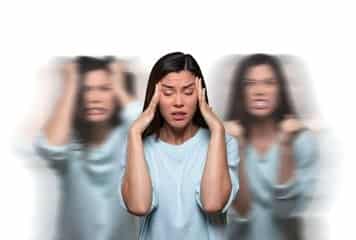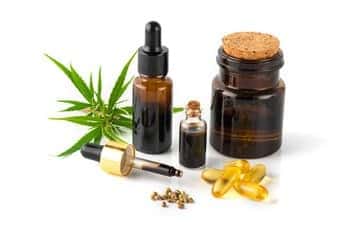CBD – also known as cannabidiol – is a type of cannabinoid, a chemical that naturally occurs in cannabis.
A most common concern about CBD oil is whether or not it can benefit those suffering from anxiety. Well, the answer is, Yes! CBD has become a prominent choice of treatment for anxiety.
Studies have been very positive that treatment by CBD Oils is more effective when it comes to anxiety precisely than most other conditions.
It might just be the optimal treatment for anxiety sufferers; this was what they have been hoping for because of the low risk of side effects or dependency,
Evidence suggests that cannabidiol (CBD), a nonpsychotomimetic and nonaddictive primary component of the Cannabis sativa plant, reverses anxiety-like behavior.
Learn more about this natural treatment and how it could help you move forward without the adverse effects of anxiety.

There are different types of chronic pain as well; CBD can be a natural option for treating those with minimum side effects. European Journal of Pain conducted a study using an animal model, in that study, CBD was applied on the skin, and it proves that it could help lower pain and inflammation due to arthritis.
CBD inhibits inflammatory, and another study also proved neuropathic pain demonstrating the mechanism by which two of the most painful types of chronic pain to treat.
Understandably, many people with these ailments also take prescribed antidepressants. Consequently, possible interactions could emerge by merging the two, medical professionals and patients need to be trained on this matter.
CBD has shown remedial effectiveness in a range of animal models of anxiety and stress, both physiological and behavioral measures of anxiety were reduced.
But, to verify the claims of CBD enthusiasts, we may need more research in this with humans.
People with stressful public speaking tasks also recorded a lower level of anxiety with the usage of CBD as tested in the small human laboratory and clinical trials.
Also, the people experiencing traumatic stress disorder reported a less anxiety level when tested in a laboratory specially designed for this testing after the usage of CBD oil. CBD was proved helpful in forgetting these traumatic memories.
Proven by various recent studies, CBD can help with post-traumatic stress disorder (PTSD). People with symptoms, such as having nightmares and replaying negative memories, reported significant improvement in their anxiety levels. CBD was observed, both a standalone PTSD treatment as well as a supplement to traditional therapies in these studies by medication and cognitive behavioral therapy (CBT).
How this works?
The human body has many different protein-based receptors that are attached to your cells, and their signals are received from various stimuli.

Anxiety often stems from chemical imbalances that are beyond an individual’s control, and this is where CBD shines. People feel more relaxed, less stressed, and, of course, happier with the usage of CBD, finding an alternative natural remedy can be difficult. CBD oil offers a potential alternative solution for people with anxiety who have gotten no relief from other treatments. Indeed, people experiencing depression or anxiety are much more likely to use cannabis.
CBD is a 5-HT1A agonist. Here is the little bit introduction of 5-HT1A, it is a serotonin receptor, often targeted by Selective serotonin reuptake inhibitors (SSRIs), a joint medication group used to treat anxiety, and anxiety-related disorders declares that SSRIs is very useful in blocking the absorption of serotonin in the brain, increasing the brain’s ability to transport even more signals, reduce anxiety, and boost overall mood.
It improves the mood quicker than conventional SSRIs as Signals to serotonin receptors are heightened, resulting in increased transmission of 5-HT1A without any side effects.
Along with caloric energy balance and immune function, The Endocannabinoid system (ECB) regulates diverse physiological functions, the ECB system is also essential to the regulation of impulsive behavior, being necessary to forms of synaptic plasticity that determine learning and response to emotionally prominent, particularly highly unpleasant events.
Including decreasing significant seizures, CBD appears to hold benefits for an extensive range of neurologic disorders.
During a well-controlled group study of pediatric epilepsy, the beneficial effect of CBD recorded as seizure frequency by more than 50% was reduced.
According to another study of 2016, CBD can have antipsychotic effects in people with schizophrenia. Moreover, CBD doesn’t cause the debilitating side effects associated with some antipsychotic drugs.
Although, more research is needed and the precise mechanism yet to be clarified and but it is clear that the anxiety-reducing effects of CBD appear to be mediated by changes in serotonin receptor 1a signaling.
The National Institute on Drug Abuse says that CBD has been shown to reduce stress for generalized anxiety disorder (GAD) in animals such as rats.
CBD can also treat social anxiety disorder and post-traumatic stress disorder and other forms of anxiety.
In 2011, a study was conducted on CBD’s effects on humans, where people suffering from social anxiety disorder were given the oral dose of mere 400 milligrams or a placebo. Those who were given the CBD recorded a lower level of anxiety.
According to a report from the World Health Organization, “In humans, CBD exhibits no effects indicative of any abuse or dependence potential …., (and) there is no evidence of public health-related problems associated with the use of pure CBD.”

